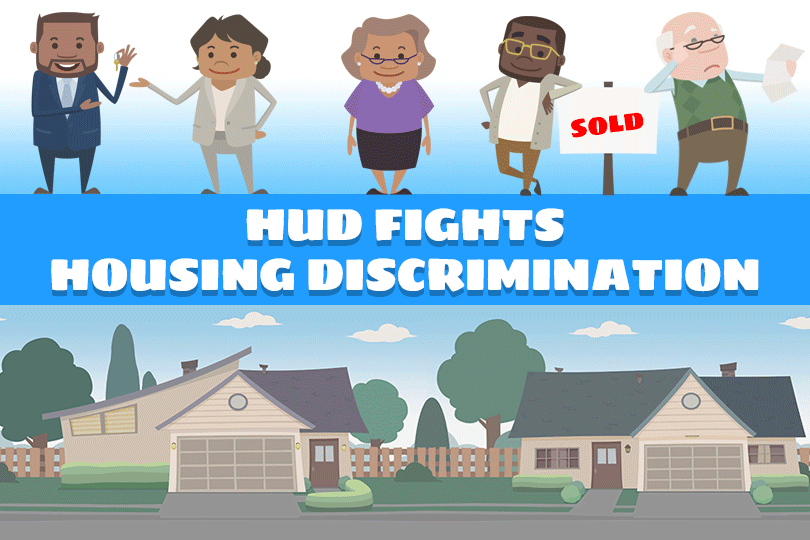Long Island Landlord Guilty In Fair Housing Case

Discrimination in the housing process (buying or renting) has a proudly negative effect on the housing industry. Fair Housing Act cases are prosecuted to stop this discrimination. The results are often dependent on the victims of such discrimination to file a complaint and start the investigation process by doing so.
We report on such cases here to raise awareness of the need for fair housing as well as the need for victims of housing discrimination to file a formal complaint when such discrimination happens.
One good example is a New York fair housing case in 2022 that resulted in an Administrative Law Judge delivering a guilty verdict and ordering more than $70 thousand in penalties be paid. According to a HUD press release, the Judge issued a ruling that Long Island landlord Alex Raimos was guilty of violating the Fair Housing Act.
How? Raimos allegedly refused to rent “to a mother and her daughter because of the daughter’s cerebral palsy” according to a HUD press release. According to the complaint, a potential renter approached the and got an initial agreement for a rental unit. The applicant even paid a security deposit.
The HUD press release adds that Raimos changed his mind after learning about the medical issues in the renter’s family. This type of housing discrimination is a violation of the most basic tenets of the Fair Housing Act.
The administrative law judge quoted on the HUD official site, notes, “outright refusal to rent is arguably the most egregious form of fair housing violation” with the renter denied a housing opportunity for no good reason.
HUD investigated the complaint against Long Island landlord Alex Raimos and ultimately charged him with violating the Fair Housing Act. When these violations are prosecuted, they are typically brought before an administrative law judge unless any party objects.
In this case, no objections were raised, and the case went before the judge, who found Raimos to be in violation of Fair Housing laws. The landlord was ordered to pay just over $20 thousand in civil penalties to the federal government, and approximately $50 thousand paid to the victims of the discrimination.
Fair Housing Act laws make it a crime to discriminate against a house hunter at any stage of the housing process--including lending, applying, house hunting, or renting--because of disability. This includes refusing to rent a property to someone using a person’s disability as the excuse for denying a rental unit or sale of property.
“Persons with disabilities have been protected from discrimination in housing by the Fair Housing Act for more than 30 years, yet they continue to be subjected to discriminatory treatment,” according to Demetria L. McCain, HUD Principal Assistant Deputy Secretary for Fair Housing and Equal Opportunity, who is quoted in the HUD press release.
If you have been the victim of housing discrimination, contact HUD at their toll-free number (800) 669-9777 (voice) 800-927-9275 (TTY).
------------------------------
RELATED VIDEOS:
Get to Know HUD
Your HUD-1 Settlement Statement
Meeting FHA Loan Guidelines Improves Your Chances

Do you know what's on your credit report?
Learn what your score means.






